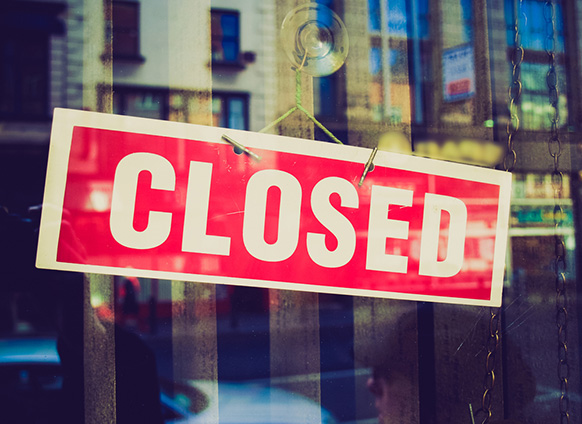Your Business Failed, What’s Next?
1. Recognize and admit your failure.
This is the hardest part of recovering from failure, but also the most important. Shock and denial are normal feelings, especially if you were really invested in your idea. It can be challenging to sift through these potent emotions to identify a failure.Remember that, as a business owner, you might be too close to see the situation clearly. Listen to your partners, employees and friends. Sometimes they will recognize when it’s time to cut losses long before you do. Only by identifying and accepting a failure can you move on from it.
2. Practice self-care.
Failure is an emotional experience. Shock and denial might be followed by disappointment and even dramatic physical changes, such as a drop in serotonin.Allow yourself to feel these feelings, and then get over them. Don’t wallow, but don’t deny the emotional consequences of failure, either.
Failure makes us feel weak and unworthy. This in turn reduces our motivation to try again. To fight this, we must nurture our inherent abilities. Remember what you’re good at and surround yourself with inspiration.
3. Identify why your business failed.
After coping with the initial emotions associated with failure and finding yourself on solid ground again, the real work begins. Analyzing what went wrong with your failed business idea and why your efforts weren’t successful is the most productive and fruitful part of a failure. Without understanding exactly why you failed, you can’t use that failure to inform future decisions.Zeadoo taught me important business lessons about profit strategy, but failures can also teach you crucial lessons about your personality as an entrepreneur. For example, Elance-oDesk VP Matt Cooper learned from his first failed venture that he has a tendency to move too quickly with business ideas. Knowing this, he set clear deadlines for himself with future startups to ensure he was moving at a sustainable pace.
4. Redefine success.
After re-examining your failure with a clear head, it’s time to leave it behind. Carry the lesson with you, but redefine what it means to be successful.Choose a new project. Engage in something you’re passionate about. Creating new goals will excite you and provide an opportunity to apply what you have learned from your failed venture.
Within a year of saying a sad goodbye to her first web startup, CEO Kathryn Minshew threw herself into developing The Muse, a now-thriving career development platform. After failure, she recovered and found a new channel for the creative and entrepreneurial energy that ultimately fueled her success.
5. Stay vigilant.
Failures can cause us to become more risk-averse or decrease our self-confidence, even after we think we’re fully recovered.When you start a new project after experiencing failure, it’s important to monitor your behavior. Are you avoiding risks or being particularly hard on yourself? These habits could hold you back. Be aware of ways a past failure might be impacting your productivity. Identify these bad habits and fix them.
SOURCE:success.com


Comments